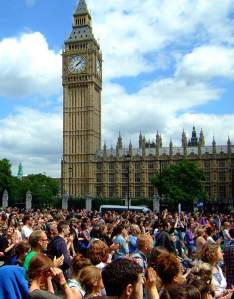URGENT – FOR IMMEDIATE RELEASE AND CIRCULATION
Lobby of Parliament
Government ‘concessions’ not nearly enough, say academics and UCU

London Region UCU has called a lobby of Parliament today (26 April) at 12 noon. The lobby is supported by UCU and the Campaign for the Public University.
What is at stake
The Government has made some concessions to attempt to get the Higher Education and Research Bill onto the statute books before the General Election. The Bill faced nearly 250 amendments proposed by the House of Lords. They need votes in both Houses of Parliament to get approval.
The House of Commons will take a decision on the future of the Bill later today. London Region UCU has called a protest and lobby in Parliament Square from 12 noon. Union members are being urged to write to MPs.
Analysis by UCU, the Council for the Defence of British Universities (CDBU) and the HE Convention is that these “concessions” do not go far enough.
Yesterday UCU General Secretary Sally Hunt wrote to all members. She writes that
Amendments which are NOW AT RISK include:
- blocking plans for a crude rating of teaching quality
- removing the link between teaching excellence and tuition fees
- ensuring any organisation awarding degrees meet improved quality standards
- removing international students from net migration targets
- protecting overseas staff
Prof David Midgley, a leading member of the CDBU, notes that the Government has provided little detail in its response to many of the Lords Amendments, and some amendments are not addressed at all.
His analysis, published today by the HE Convention, observes that the Government has potentially made minor concessions on points 1 and 3 above, but has refused to remove the link between the TEF and fees, and has made no improvements to protect international students and staff.
Republished from UCU London Region.

 The Second Reading of the Higher Education and Research Bill in the House of Lords will take place on 6 December.
The Second Reading of the Higher Education and Research Bill in the House of Lords will take place on 6 December.